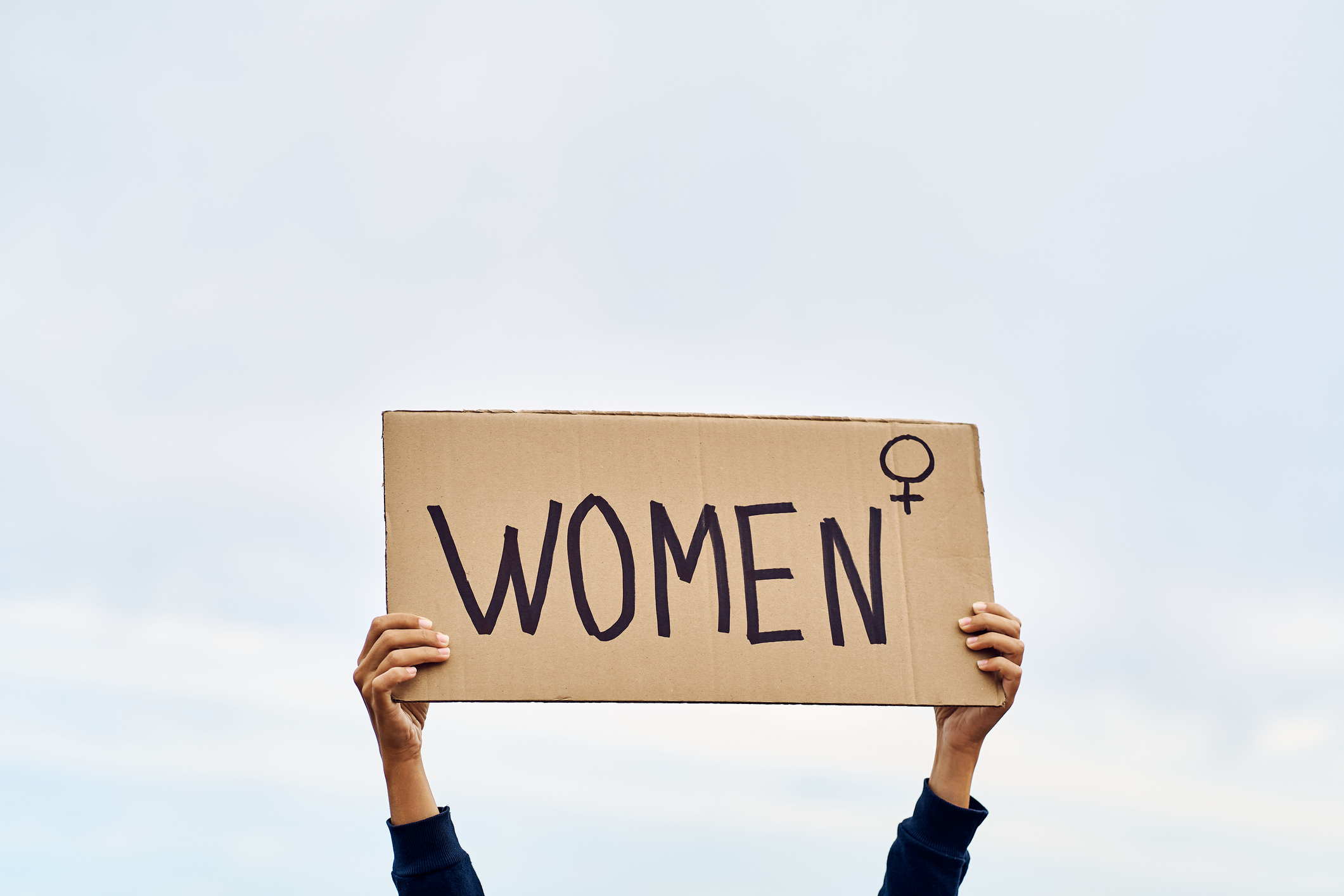Growing up, I noticed it was common for young girls to have their lives revolve around pleasing boys and men. How we dressed, spoke, and behaved were often framed through the male perspective. When I was 8 years old, Destiny’s Child taught me and other young women how to cater to their future man. The idea of dedicating my life to finding a man, getting married, and living happily ever after just didn’t sit right with me.
As I got older I realized that men’s influence runs especially deep for Black women. Men, as a group, control every societal, political and economic structure. Being a Black woman felt exhausting. My entire life seemed consciously and unconsciously catered to the male gaze.
“Even pretending you aren’t catering to male fantasies is a male fantasy…” said Margaret Atwood, author of The HandMaids Tale.
Society tells us that men’s opinions and standards matter the most. Stepping back from that idea has been a game-changer for me. In fact, decentering men transformed my life.
Discovering My Genuine Self
Recognizing that how I dressed, walked, and even spoke were rooted in appealing to men hit me hard. Even when I thought I was dressing for myself, I realized I was still influenced by what men liked. Taking a step back and turning my attention inward revealed my true interests void of male perspectives.
Clothes
I shifted my focus to wearing clothes that genuinely resonated with me. Bold silhouettes, unique patterns, and fabrics that felt authentic were my priority. I embraced layers and cozy sweaters that didn’t necessarily flaunt my figure. I had to break away from the idea that I needed to conform to fit a man’s expectations. While I appreciated the confidence that came with showing off particular parts of my body, I also knew it often played into what men wanted. So, I experimented with a style that felt more aligned with my own identity. I leaned into my masculine side, finding sensuality and confidence beyond my physical appearance.
Hair
The pressure to have long hair was real in my life. I was taught that long hair was synonymous with beauty. Society made it seem like men only found long hair attractive, and that I should, too. I discovered, however, that I didn’t feel like myself with long hair. Despite how stunning it looked on others, it didn’t boost my confidence. So, I chopped off almost all my hair at a time it wasn’t popular to do so, ignoring what society or men thought. It was liberating—I began appreciating myself as a blank canvas.
Hobbies and Interests
My hobbies and interests were also aligned with what men might find attractive. I practiced yoga for because of it’s potential to appeal to men.When I shifted my perspective, distancing myself from the male gaze, I discovered the incredible personal benefits yoga offered me beyond anyone else’s perspective or opinion.
These realizations have been transformative. They helped me break free from the pressure of meeting societal or male expectations and allowed me to embrace my genuine self.
Exploring Black Feminist Works
Immersing myself in literature written by Black women and women-identifying authors became a vital step in my journey to decenter men. I made more conscious decisions to prioritize feminist works, particularly those crafted by Black women and women of color, in everything I consumed whether it was through films, articles, or social media.
“Ain’t I a Woman?: Black Women and Feminism” by Bell Hooks holds a special place in my heart. Hooks artfully articulates the urgency of centering Black women’s stories and experiences within critical discourse. She challenges society when they sideline or overshadow the narratives of Black women with male perspectives.
Shifting My Focus to Women Centered Relationships
In matters of love and commitment, I’ve always taken my time—my first serious relationship wasn’t until my college years. Yet, looking back, I realized I inadvertently placed substantial importance on connections with men throughout my life. Even my relationships with women often were centered around discussions about men. We seldom had conversations about our mental and emotional well-being but consistently around each other when our romantic endeavors left us heartbroken.
Recognizing this pattern created a shift within me. I redirected my energy towards nurturing bonds with my girlfriends and the women in my circle. I dedicated more time to these relationships and actively championed their dreams, ideas, and ways of life. Our conversations evolved too—deliberately steering away from discussions solely centered on the new men in our lives to embracing our emotions, viewpoints, and unique experiences. These exchanges became invaluable, deepening our connections in ways that hadn’t been possible when our focus was primarily on men.
In a world where so many traditional support systems falter, our relationships with each other are paramount.
The Journey Continues
The journey of decentering men is ongoing and complex. Being a cisgender woman in a relationship with a man, within a world where men hold considerable power, makes decentering them difficult. Yet, actively shifting my focus away from male expectations and towards my desires has been revolutionary. I have uncovered my authenticity, and reshaped my definitions of success, beauty, and the dynamics of relationships on my own terms.
Ultimately, decentering men isn’t about undermining their significance but creating room for the empowerment of women. For women of color, in particular, it’s a means of embracing our truths and redefining our worth beyond societal norms. We get to reclaim our narratives, amplify our voices, acknowledge our struggles, and celebrate our accomplishments independently of male validation.
Aysia Morton, a culture and travel writer, wrote this story.
